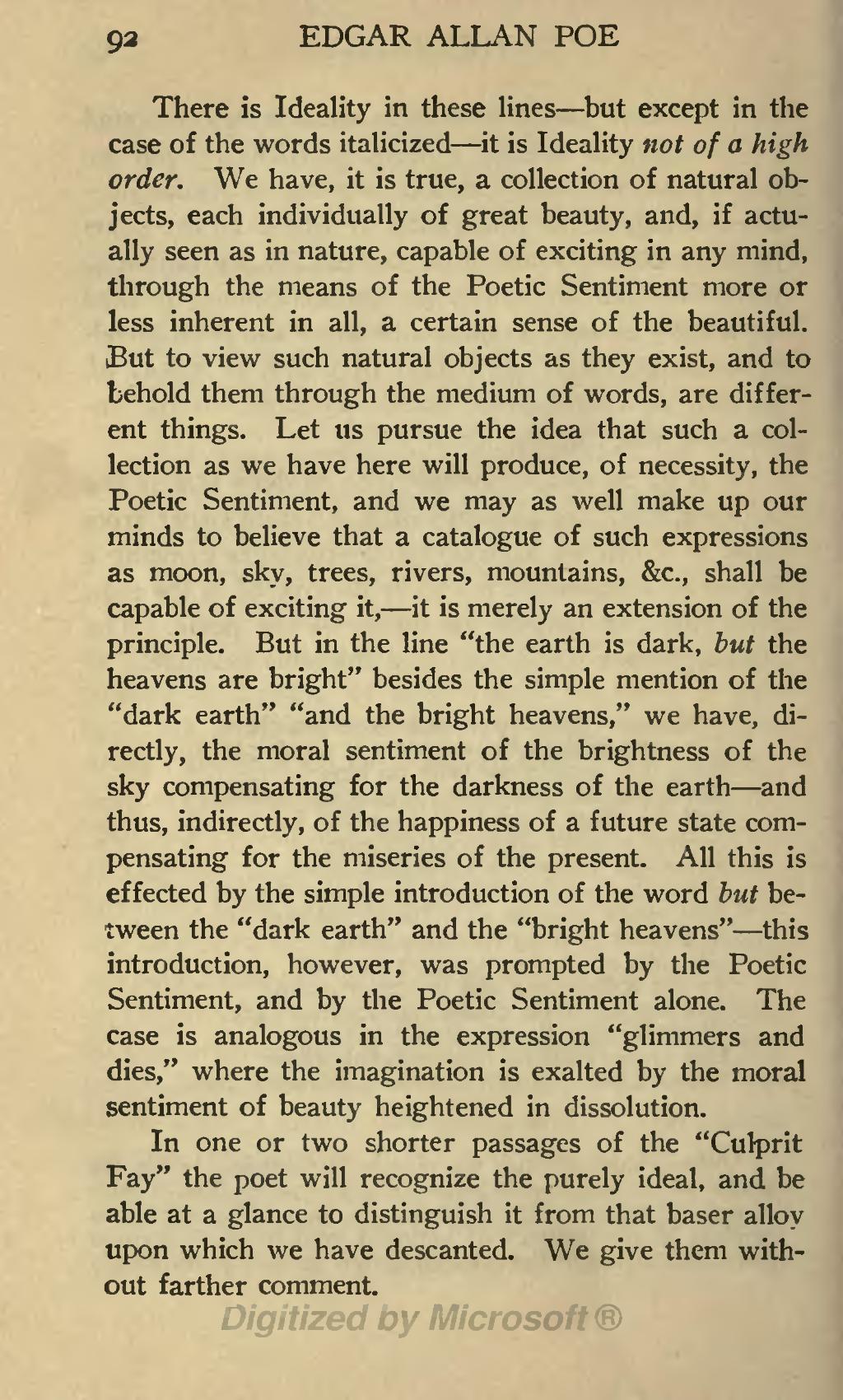There is Ideality in these lines—but except in the case of the words italicized—it is Ideality not of a high order. We have, it is true, a collection of natural objects, each individually of great beauty, and, if actually seen as in nature, capable of exciting in any mind, through the means of the Poetic Sentiment more or less inherent in all, a certain sense of the beautiful. But to view such natural objects as they exist, and to behold them through the medium of words, are different things. Let us pursue the idea that such a collection as we have here will produce, of necessity, the Poetic Sentiment, and we may as well make up our minds to believe that a catalogue of such expressions as moon, sky, trees, rivers, mountains, &c., shall be capable of exciting it,—it is merely an extension of the principle. But in the line "the earth is dark, but the heavens are bright" besides the simple mention of the "dark earth" "and the bright heavens," we have, directly, the moral sentiment of the brightness of the sky compensating for the darkness of the earth—and thus, indirectly, of the happiness of a future state compensating for the miseries of the present. All this is effected by the simple introduction of the word but between the "dark earth" and the "bright heavens"—this introduction, however, was prompted by the Poetic Sentiment, and by the Poetic Sentiment alone. The case is analogous in the expression "glimmers and dies," where the imagination is exalted by the moral sentiment of beauty heightened in dissolution.
In one or two shorter passages of the "Culprit Fay" the poet will recognize the purely ideal, and be able at a glance to distinguish it from that baser alloy upon which we have descanted. We give them without farther comment.
